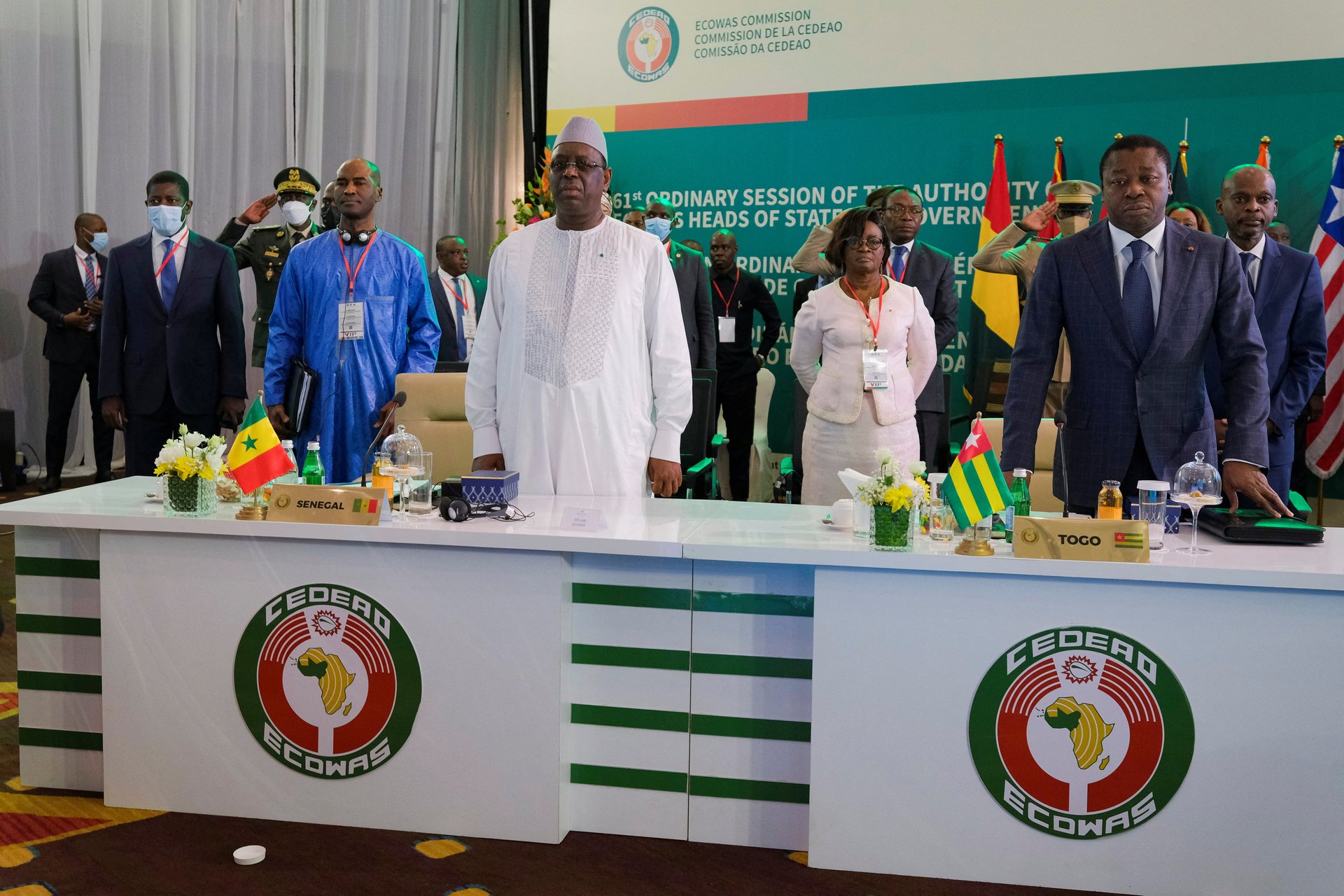Nigerian lawmakers threatened to quit west Africa’s economic union over nepotism
Citing contributions to Ecowas, Nigerian lawmakers demand more benefits from a recruitment exercise.

Lawmakers who represent Nigeria at the Economic Community of West African States’s (Ecowas) parliament picked a fight with the bloc over what they described as an unfair recruitment exercise that did not include Nigerians, leaning into the grievance to question the value Nigeria actually gets from belonging to the bloc.
“If you are in a system and you are not getting the right results, where you are investing your money, it pays best to walk out of the union,” Ahmed Idris Wase, the deputy speaker of Nigeria’s House of Representatives who is the first deputy speaker of the Ecowas parliament, said last week. Wase and his Nigerian colleagues alleged that people in charge of an ongoing recruitment exercise at the Ecowas secretariat in Abuja, Nigeria’s capital, have focused on “bringing in their relatives, and their siblings against the larger interest of our community.” The jobs in question are administrative staff positions at the secretariat. Those who fill the roles run the daily operations that help the union fulfill its mandate.
It would be a minor administrative issue were it not for Nigeria’s crucial importance to the foundation and existence of the union, previewing issues that could arise as the much vaunted Africa Continental Free Trade Agreement (AfCFTA)—one of the world’s largest trade agreements—struggles to fully take off.
Nigeria is key to how Ecowas operates
Since Nigeria spearheaded its founding in 1975, Ecowas has coordinated the economic integration efforts of the union’s 15 member states administered by the Ecowas Commission. Arguably its most prominent role has been to draw up a course of action for intervening when any member state is in a political crisis, the most recent examples being its suspensions of Guinea and Burkina Faso due to military coups. It employs everything from trade embargoes to flight restrictions to penalize member states.
The union is funded by the contributions of the member states, but Nigeria has supposedly borne the largest burden. Nigeria claims to have contributed 40% of the $2.9 billion payment made by the 15 member states over the last 16 years. Wase, a member of the All Progressives Congress party to which Nigeria’s president Muhammadu Buhari belongs, suggested Nigeria may well divert all the money it uses to support Ecowas toward addressing its own infrastructure deficit and security challenges. “Yes, we will pull out if we don’t get the desired result from this.”
Ecowas officials in charge of recruitment have refuted allegations of wrongdoing, insisting the exercise has been “very competitive and cannot short-change any country let alone Nigeria that has made invaluable contributions to the development of the community.” That said, the contentious recruitment appears to have been suspended with an investigation launched to appease Nigeria, an outcome that shows the unshaken power of the region’s largest economy within its strongest sphere of influence.
